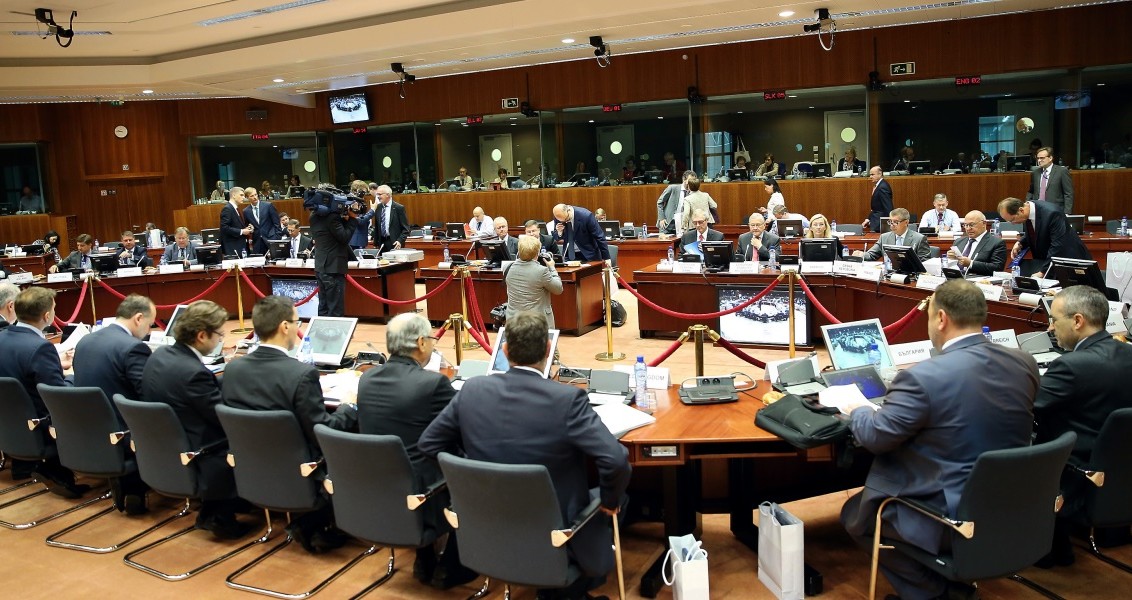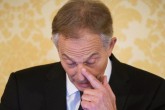Those who conduct international relations analyses could make frequent references to Francis Fukuyama’s famous “end of history” thesis from nearly a quarter of a century ago. Liberals try to convince us that Fukuyama was right, and that with the end of the Cold War, history had indeed ended. What has been experienced since that day until now has proven Fukuyama wrong. History did not end. Presumably because of this, no one remembers this particular thesis anymore.
No, history did not end. History is under construction, flowing as a dynamic process. In order to prove this at the beginning of the 2000s, we were presented with the developments in the Middle East as proof. In this sense, the 9/11 attacks came as an exception, as we were speaking about the possibility of the West’s political collectiveness being damaged and that history continued to flow with all of its surprises. But as I mentioned, we regarded 9/11 as an exception and arrived at a consensus that in terms of the West’s political union, an endpoint had been reached in history.
At the beginning of the 20th century, the West’s political union suffered a serious crisis. That period was one wherein the 19th century’s order of dominance no longer worked, where colonial wars were fought between Western countries and where Nazism and fascism began to influence Europe. We are speaking of a period when Oswald Spengler wrote “The Decline of the West.”
Undoubtedly, World War II opened the greatest crack in the West’s political union. With the end of that war, history’s bloodiest, the West’s political union was built under the leadership of the U.S. The U.S. had come to the forefront as a “leader country” in Talcott Parsons’ words, while Europe had come together with the coordination of France and Germany and thus contributed to the reconstruction of the West’s political union.
The traditional colonizing leader of the Western order, Britain, preferred to play the role of a bridge between the U.S. and Europe, moving with the U.S. politically and with Europe economically. Charles de Gaulle, president of France at the time, objected to the U.K.’s bid to enter the European Union. The main reason behind this was his regard of the U.K. as the U.S.’s “Trojan horse.” The U.K. was only able to enter the EU after de Gaulle left the scene.
After the end of the Cold War, the U.S. and the EU jointly represented the Western political union, and in this period, the U.S., U.K., France and Germany took the leading roles. Global problems became ones not where these countries were directly involved, but problems where they had to protect themselves and become involved in different ways because of this. In this process, the Middle East especially became a center of conflict. Despite that problems experienced in the region also sourced crises that negatively affected the West, such as terrorism, these problems did not affect the West’s political union. In this sense, for the West, the “end of history” thesis still held.
However, the developments we are witnessing today posits that it is especially for the West that history is beginning again. The West’s conventional order is disintegrating; it’s political union is disbanding. On one hand, the U.S. is withdrawing from its position as a leader country. If there is one thing that both liberals and conservatives can agree on in the U.S. today, it is the thesis that the U.S. has lost its grand narrative in order to protect and look after the Western political union.
Of course, the truth of this thesis can be debated. But there is another clear fact, which is that the European Union has begun to lose its charm, and that it is currently face-to-face with a deep crisis that it has never come across before in its history. This crisis is not just a crisis of the European Union project. It is also a crisis of the Western political union.
The Brexit decision put forward a very pessimistic view about the future of the European Union. No matter how much German Chancellor Angela Merkel says: “We have to set a positive agenda, and positive goals,” this is not easy to accomplish in an environment where the “spirit of positive union” has disintegrated.
The foremost name of France’s far-right, National Front leader Marie Le Pen, regarded the Brexit as the “beginning of the end of the European Union.” She announced that in a decade there would be no such thing as the EU and that there would be a return to the “Nations of Europe” order. Obviously this is the view of the far right. Although European liberals continue to ignore it, the far right is unfortunately quickly taking over Europe. We watched the performance of the Freedom Party of Austria in Austria’s presidential elections. In the U.K., the U.K. Independence Party was the winning party in European Parliament elections. In Germany, the Alternative for Germany party, which boasts of being anti-Islamic, is the third most popular party. Even in the Netherlands, the Party of Freedom took 10 percent of the vote in the last election. These far-right parties are not just growing by themselves, they are also causing the transformation of the liberals” and pulling them to the right as well.
This crisis in Europe is caused by its unhealthy regard of the other. This arises from its view of the other, meaning immigrant, Middle Eastern, Muslim or Turkish. The politics of fear that have been green-lit in the name of everyday interests is bankrupting the West’s political union at the end of the day. We saw this most clearly during the campaign period of the various sides prior to Brexit.
[Daily Sabah, July 15, 2016]
In this article
- Foreign Policy
- Opinion
- 2000
- 2016
- Angela Merkel
- Anti-Islam
- Anti-Muslim
- Austria
- Avrupa
- Brexit
- Britain
- Cold War
- Daily Sabah
- Elections
- Europe
- European Parliament (EP)
- European Parliament Elections
- European Union (EU)
- Far-Right
- France
- German Chancellor
- Germany
- Hollanda
- International Relations
- Islam
- Islamic
- Islamophobia
- Middle East
- Muslim
- Nazi
- Netherlands
- September 11 2001 Attacks | 9/11
- Terrorism
- UK
- United Kingdom (UK)
- United States (US)
- Western Countries
- Western World
- Xenophobia



